Sex Scandals of Far Left Activists-turned Democratic Party Lawmakers Im Jong-seok, Song Young-gil, Woo Sang-ho, Yun Ho-jung While Visiting Vietnam
2022-6-13, Tara O
What do Im Jong-seok (임종석), Song Young-gil (송영길), Woo Sang-ho (우상호), and Yun Ho-jung (윤호중) have in common? They are or were influential lawmakers of the Democratic Party of Korea. During their student days in 1980s, they all have been charged with violating laws with their subversive activities, which were anti-state, anti-U.S., and pro-North Korea; they are part of the so-called 586 generation (in their 50s currently, activism in the 80s, born in the 60s). As lawmakers, they also went to Vietnam and received entertainment services, which included visiting a room salon and receiving sexual service, according to the person who provided the entertainment bribe.
(Note: The “586” generation was initially known as the “386” generation, since they were in their 30s when they were in universities in the 1980s.)
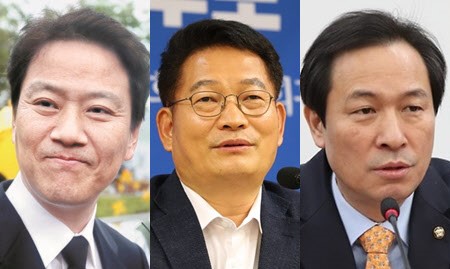
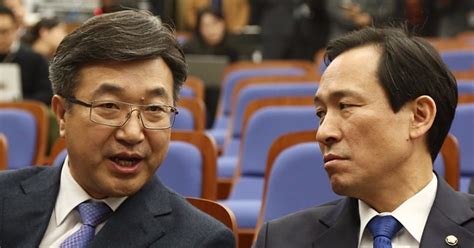
Sexual Bribery Scandal
The four lawmakers went to Vietnam and were treated with room salon service (“1 cha” or “stage 1”) and the activities afterwards (“2 cha” or “stage 2”) by SK Telecom (SKT). The room salon service usually includes a room with alcohol, female escorts, and karaoke. The room salon was named High Society (상류사회) in the Amara Hotel (the hotel name has changed since) in Ho Chi Minh City, Vietnam. (0:44) It was a Korean-operated room salon with signage in the Korean language Sangryu Sahoe (상류사회), which translates to high society or upper class society.
Song Young-gil was not feeling well, so he left after stage 1, but Im Jong-seok, Woo Sang-ho, and Yun Ho-jung stayed on to enjoy their room salon services. The “stage 2” was at their hotel, the Ho Chi Minh Sheraton Hotel, a 5-star hotel about 10-15 minutes away by car from the room salon (Rho Moo-hyun stayed at the Sheraton when he visited Vietnam). (4:19) Prostitution is illegal, but they got around it by booking individual rooms for the female escorts (who were students), so that they became legitimate guests of the hotel. (2:50) SK Telecom’s (SKT) employees were tasked with arranging for these services, including transporting the escorts from the Amara Hotel to the Sheraton Hotel, and waiting in the lobby, so the escorts can report when they leave the hotel rooms. (5:01) The women’s whereabouts were monitored, and they were told to report when they left the hotel rooms. For Yun ho-jung, the escort left early. The escorts for Im Jong-seok and Woo Sang-ho “definitely stayed” overnight,” according to the same witness who arranged these “entertainment services.” (5:02)
On the day of the departure, Im Jong-seok opted out of going to the airport with the rest of his group. Before he left, Im wanted to repeat the experience again and requested from SKT for “one more round.” An SKT employee then called the High Society room salon manager Kim Hoon (6:21) to line up (literally) female students at the room salon, from which the guest picks a woman. It is surmised that Im went for “stage 2,” since right above the room salon are hotel rooms at the Amara Hotel. Im went to the airport later for his departure flight.
The entire recording can be heard below at the Garo Sero Yeonguso (Hoverlab) YouTube channel. It was accessible as of June 11, 2022, but often Garo Sero Yeonguso’s videos get blocked and/or its YouTube channel gets demonetized, because it dares to air politically sensitive topics, such as this. The police have also broken into their homes and detained them in the past.
Although Song Young-gil did not attend stage 2 this time, he has his own sex controversy from his previous visits to Vietnam. During the mayoral race in Incheon, Song’s opponent Baek Seok-doo (백석두) of the Peace and Democracy Party filed charges against Song in 2010, stating that “On or around August 19, 2004, candidate Song Yong-gil received entertainment services from large corporations, such as SKT, at a room salon in Ho Chi Minh City, Vietnam, and stayed at a nearby hotel with an underaged girl who was only 17 years old at the time, and received sexual service.” The charge further stated, “Even after that, he not only received several sexual favors until 2007, but he also used his position as a member of the National Assembly to provide lobbying for investment by large corporations such as SKT to Vietnamese officials in exchange for hundreds of thousands of dollars in bribes.” It was also alleged that an underaged female rushed out of his room and reported that Song pulled the teen’s pubic hair with his teeth, earning Song Young-gil the nickname of “Songtnam” (송트남). The Vietnamese authorities were alerted and descended onto the hotel in the early dawn, and apparently the room salon manager and the South Korean embassy had to be involved to resolve the matter.
The prosecutors disposed of the charges of Song Yong-gil receiving prostitution service in Vietnam on the grounds that the statute of limitations had expired.
In July 2010, then-mayor of Incheon Song young-gil filed charges against 9 Netizens for “violating the National Election Law” for posting on the internet about Song’s sex scandals while in Vietnam.
The “586” generation activists: NL and PD
All four of these politicians hold or held powerful political positions as well as conducting Far Left activism in the 1980s. The “586” activists, shared the ideology of achieving a socialist revolution in South Korea, and the key center of this ideology was at Seoul National University. In the book 82’s Revolutionary Game, which is about this generation, especially about the Jusapa (Juche Ideology faction or Kim Ilsungism faction), “all the world’s socialism theories—Marxism, Leninism, Maoism, Imperialism, Dependency Theory, etc.—were brought in to the Seoul National University’s underground movement and (the ideologies/theories) competed with each other.”[1]
Two major ideological factions emerged from the underground activist movement at Seoul National University: “PD” and “NL.” The first to emerge was PD or “People’s Democracy,” who were Marxist-Leninists, believing in overthrowing the current power via armed revolution and build a socialist society, where the masses become the masters.[2]
NL (National Liberation) faction toted the National Liberation People’s Democratic Republic (NLPDR) line popularized by Vietnamese communists (North Vietnam and Viet Cong) when they “expelled” the U.S. and unified the country under its communist party in the 1970s. The end goal of the NL was the same as PD’s in that it wanted a socialist revolution in South Korea, but the method was different. The NL faction viewed South Korea as a colony of the “imperial” U.S., and thus saw expelling the U.S. as the first step in achieving “liberation” of the Korean people (minjok). The next step was to unify the peninsula through solidarity with North Korea, which already “achieved” socialism. The features of the NL, therefore, are 1) strong anti-U.S. sentiment and activities to drive out the U.S. from Korea, and 2) the adoption and worship of North Korea’s Juche Ideology, which includes Kim Il-sung’s strategy of communizing South Korea.[3]
In the PD-NL competition, the NL faction won overwhelmingly, and this ideology rapidly spread to other universities in South Korea. They often conducted anti-government demonstrations, where throwing Molotov Cocktails became routine. They also illegally occupied the U.S. Embassy Cultural Centers in various locations around the country, even setting fires to some.
Many of the NL faction became key cadres of underground organizations that were directed by North Korea’s Workers’ Party, such as NamMinJeon (South Chosun People’s Liberation Front) and JaMinToo (Anti-U.S. Independence and Anti-fascist Democratization Struggle Committee).
(Note: North Korea uses the name of the ancient Kingdom “Chosun” to describe Korea. They call North Korea “Chosun” and South Korea “South Chosun.” Chosun is sometimes spelled Joseon.)
Their use of the term “democracy” was not “liberal democracy,” but rather “people’s democracy,” a concept used in North Korea (and its name DPRK), which is not about the people, but about socialism. Their “democracy” was not about individual freedom based on natural law, but one in which the individual rights and freedoms are expropriated by the state, dominated by one ruler, like North Korea. See here for Terminology Confusion Tactics (or Terminology Deception Tactics), particularly the term “democracy.”
The key leaders of this organization began as an underground group, organizing students for their mass movement. Lee Dong-ho (이동호), a central committee member of the underground student organization “Secret Union” that controlled the surface level group Student Union at Yonsei University, gave a lecture “the Inconvenient Truths of the Left” at Truth Forum, a student organization, in April 2017. In the 1980s, Lee Dong-ho trained and guided Woo Sang-ho in the “Secret Union.” Lee later became the director of Solidarity Operations at Jeondaehyup (National Council of Student Representatives), which is an organization of student leaders of different universities. It has a strong NL background and had adopted the Juche Ideology of North Korea. Jeondaehyup is a tight-knit organization with strong combative power.
Lee trained the first president of Jeondaehyup, who was Lee In-yong (이인영), the second president Oh Yong-shin (오영신), and the third president Im Jong-seok (임종석). Lee was indoctrinated at the university “circles” (student groups) that “the Republic of Korea is a country that should have never been born” and “the Republic of Korea is a colony (of the U.S.).” He learned to be critical of the ROK’s founding father Syngman Rhee and the president who lifted Korea from poverty and hunger, Park Chung-hee, and Lee passed these narratives to other students.
The NL ideology (primarily Juche Ideology or Kim Ilsungism) drove many of the “586 activists,” including the four politicians discussed here. None of them have renounced their ideological beliefs to this day.
Woo Sang-ho
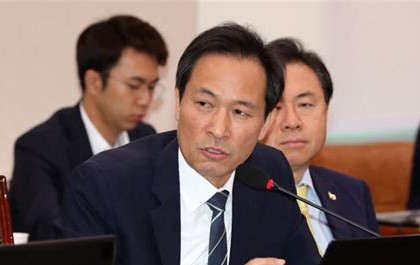
Woo Sang-ho is currently the new de-facto leader of the Democratic Party of Korea (starting June 7, 2022) as the head of the party’s Emergency Committee, replacing Yun Ho-jung. When Jeondaehyup was first created in August 1987, he was its vice president, while Lee In-yong was the president, and they held similar positions within Yonsei University’s student union (총학생회).
He led numerous demonstrations in the late 1980s, including the one in June 1987, which they see as a sacred movement. He was imprisoned in 1988. Meeting amongst themselves in 1998, they decided that a portion of them would enter politics, and Kim Dae-jung brought in many of them into politics. Woo, along with other 586 activism-background politicians maintain the same views as Jeondaehyup days, such as calling for abolishing the National Security Act, supporting North Korea (blames the U.S. for North Korea’s nuclear and missile development, critical of defector groups calling out North Korea’s human rights violations), and making economic system more socialistic.
Prior to his current position, Woo was the head of Lee Jae-myung’s election camp in the recent presidential election in March 2022.
Yun Ho-jung
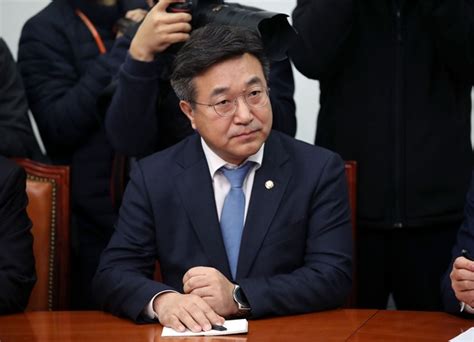
Yun Ho-jung was the Chairman of the Emergency Committee of the Democratic Party of Korea after Song young-gil, the party leader, resigned after the March 2022 presidential election. Prior to that, he was the party’s floor leader for a year from April 2021. He worked at the Blue House under Kim Dae-jung.
The Civilian Torture Incident by the Seoul National University Student Union Cadre
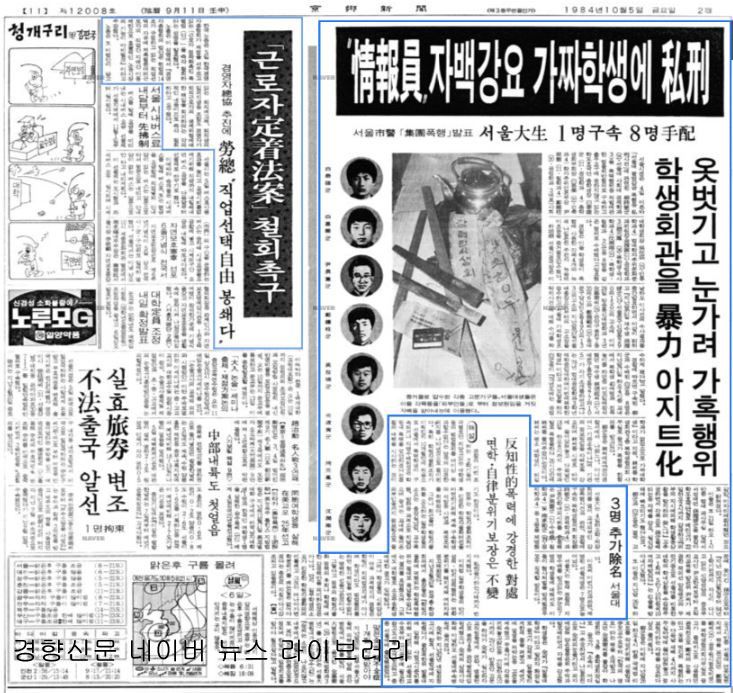
In the 1980s, Yun was a student activist at Seoul National University. A notorious case that he was directly involved in was the Civilian Torture Incident by the Seoul National University Student Union Cadre (서울대 민간인 감금 폭행 고문 사건) in 1984. Yun ho-jung was one of the key student union leaders, who unlawfully detained, assaulted, and tortured four different students over 11 days from September 17 to 27, 1984. Yun and others detained and tortured four victims, claiming that they were moles of the government, which was not true. They tortured their victims to get “confessions,” leaving lasting trauma on them.
The student victims were Im Shin-hyun (임신현), Sohn Hyung-gu (손형구), Chung Yong-bum (정용범), and Chun Ki-dong (전기동). Sohn made a false confession under torture, while all others denied it. Chun, who was tortured the most, stated that they changed his clothing and blind folded him, then took turns beating him for hours, immersing his head into a sink full of water and holding him down on the floor while continuously pouring water over his face to prevent him from breathing. A student at a different university, he was taking a class at SNU, and went to the campus that day to borrow a book from a professor, who confirmed his identity. Yet the violence against him did not stop. Through hours of beatings and water torture, his tooth was broken and he had to be hospitalized for two months afterwards. He gave up his plans to study for and take the bar exam as he suffered from sociophobia due to the trauma. At 64 years old at the time of interview, he never married.
Perpetrators
The victims filed charges with the police after their release from captivity, upon which the police investigated. Yu Shi-min (유시민), the leader of the Returning Students Council (복학생협의회) at SNU, who watched and supervised the torture and interrogated and threatened the victims, was found guilty and imprisoned. According to the testimony of Shim Yun-nam (심윤남), one of the torturers, Yu Shi-min supervised the teams that were torturing the students.
Baik Tae-ung (백태웅), the chairman of the student union (학도호국단 총학생회장) at SNU, along with Yun Ho-jung, Baek Gi-yong (백기영), and others ran away after the incident, and became fugitives on the wanted list.
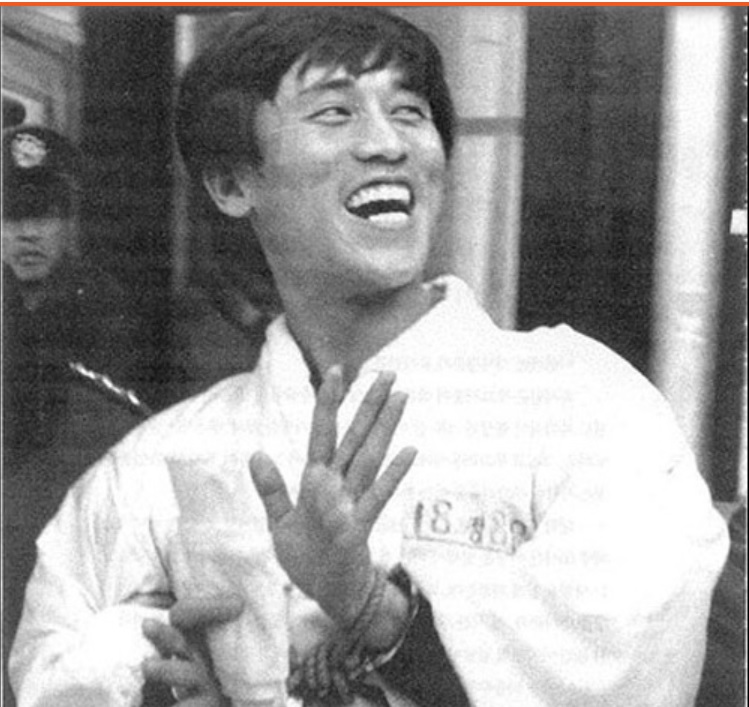
Yu Shi-min became the Minister of Health and Welfare in the Rho Moo-hyun administration, then co-chair of the now outlawed and defunct Unified Progressive Party (UPP) (whose leader Lee Seok-ki was imprisoned for plotting to overthrow the South Korean government), and the chairman of the Rho Moo-hyun Foundation. He also has become a TV personality, and has played a propagandistic role for the Moon Jae-in administration.
In 2006, victim Chun ki-dong gave an interview, “Yu Shi-min has not made a proper apology to the victims even until now. He stubbornly gives excuses and he lies, and at every chance, he states he was active in the democracy movement. Far from reflecting on the wrongs of the past, he constantly hurts the hearts of the victims. Yu Shi-min was the oldest person (in the group) at the time of the incident, the person who led the assault by cleverly entering to instigate and leaving the scene repeatedly.”
Baek Tae-ung, along with Park No-hae (박노해), formed Sanomaeng (Socialist Workers’ League) in 1989 to bring socialism to South Korea through “class struggle” and received a life sentence for his treasonous activities, which was reduced to 15 years during appeals. He was imprisoned in 1992 and released in August 1998, went to the U.S. to study at Notre Dame University’s law school, then became a law professor at the University of Hawaii. From 2015-18, ironically, he was a member of the Working Group on Enforced or Involuntary Disappearances, which was mandated by the UN Human Rights Council, and he appears to be advising the group still.
(Note: Cho Kuk (조국), the disgraced former Justice Minister and Presidential Secretary for Civil Affairs to Moon Jae-in was also a member of Sanomaeng. See here for details.)
Yun Ho-jung became a 4-term lawmaker, and as mentioned, was the leader of the Democratic Party of Korea until recently. He is still a National Assemblyman.
The torturers have not directly apologized to their victims for their violent and terrorizing activities, and perpetuate the false narrative even to this day that the four people were moles, despite proven otherwise, as if the perpetrators were justified their cruel actions. They and their supporters call this Civilian Torture Incident at SNU the “SNU Prakchi Incident.” “Prakchi” is a Korean pronunciation for the Russian word fraktsiya, which means a mole or an espionage agent who has infiltrated an organization,” frequently used by the communists under Lenin and Stalin, and adopted by Korean communists since the 1910’s. They shirk their responsibility for severe violations of human rights and their violent actions, but cloak their violence as “democracy activism.” More accurately, it was “people’s democracy activism” or “socialism activism.”
Song Young-gil
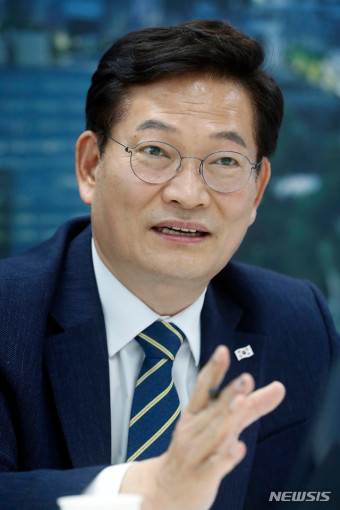
Song Young-gil took over the party leadership from Lee In-young (이인영), another student leader from 1980s. Song resigned the leadership after the party’s failure in the March 2022 presidential elections. He was still a National Assemblyman representing the Gyeyang District in Incheon, but yielded, most likely so that Lee Jae-myung, who lost the presidential race while mired in corruption controversy, could run to be a lawmaker in a district that has favored the Democratic Party of Korea (Lee Jae-myung won in the June 1, 2022 local elections, despite trailing behind in the polls that led up to the election day). Even people within his party was questioning Song’s actions. Song yielded Gyeyang District by running for election elsewhere—as mayor of Seoul, promising to give ₩1 million (~$800) to each of the 10 million Seoul citizens; he lost the election.
Song Young-gil was also the chair of the Presidential Committee on Northern Economic Cooperation and former mayor of Incheon. He was formerly a labor activist and a member of Minbyun (Lawyers for Democracy; a lawyers’ group with pro-North Korea activities, which include trying to send the 12 restaurant workers—“the Ningpo 12”—to North Korea against their will). Song is known to be fascinated by Lenin’s Bolshevik Revolution as well as taking a pro-China stance on THAAD, which is against the THAAD deployment to Korea. He also took an appeasing stance toward North Korea after North Korea blew up the South Korea-financed Liaison building in Gaesong, North Korea, by stating “Isn’t it (so considerate of North Korea) that they didn’t use artillery?” He also tried to absolve Kim Il-sung from his responsibility in invading South Korea during the Korean War by making an historically false statement, “the Korean War was a tragedy of Kim Il-sung (김일성) and Pak Hun-yong (박헌영) thrown into an invasion attempt of the south without knowing that it was a planned scenario directed by the Soviet Union and the United States.” Kim Il-sung is the one who planned and conducted the invasion of South Korea in 1950 and who received the approval and assistance of Stalin and Mao prior to the invasion The U.S. was unprepared, but quickly worked with the UN and came to the defense of the fledgling Republic of Korea.
Song entered university in 1981, making him senior to Im Jong-seok, Lee In-young, and other “586-generation people’s democracy” (socialism) activists. He became the first chairman of Yonsei University’s student union. He led anti-government, anti-U.S. demonstrations.
Im Jong-seok
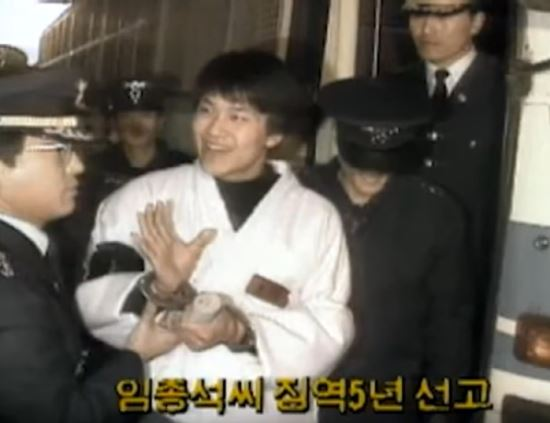
Im Jong-seok was the 3rd leader of Jeondaehyup. His notoriety stems from successfully sending a fellow far-left student Lim Su-kyung (임수경) to Pyongyang in 1989 to attend the 13th World Festival of Youth and Students and to meet Kim Il-sung, a prohibited and shocking act at that time. It was a major propaganda feat for Kim Il-sung, and Lim Su-kyung was dubbed “the flower of unification” by North Korea. Lim was jailed upon return to South Korea for violating the National Security Act, but released early by Kim Dae-jung. Later, she became a proportional representative (unelected lawmaker appointed by the party).
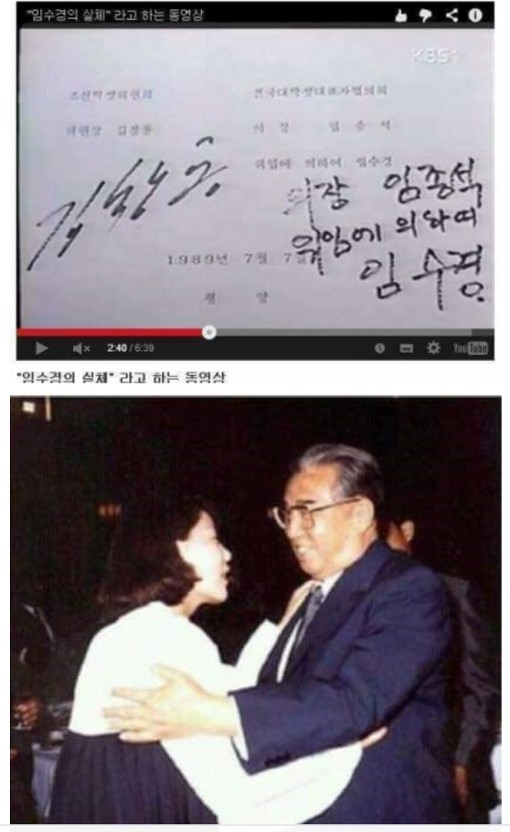
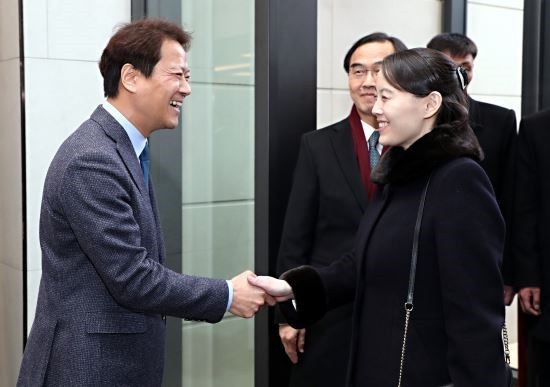
Im Jong-seok became a National Assemblyman, Deputy Seoul Mayor under Park Won-soon, the Chief of Staff under Moon Jae-in, and back to National Assembly as a lawmaker. At the Blue House, Im wielded power much beyond a chief of staff, including blacklisting and promoting generals, reprimanding the defense minister, and taking the presidential plane to visit the UAE.
In 2010, Im Jong-seok wrote praises of Kim Jong-il in a letter “Politics of a Loving Comrade” for the Action and Solidarity for Workers’ Liberation (노동해방실천연대). He wrote,
Half a century has already passed since the National Defense Commission Chairman Kim Jong Il launched his Songun [military-first] Revolutionary guidance. The reason that the National Defense Commission Chairman’s Songun policy keeps moving forward with victory after victory is because Chairman Kim’s Songun policy is the politics of love, politics of camaraderie.
(김정일 국방위원장이 선군혁명영도를 개시한 때로부터 어느덧 반세기가 지나갔다.
김정일 국방위원장의 선군정치가 승승장구하며 승리에 승리를 거둡하며 전진하고 있는 것은 바로 김 위원장의 선군정치가 사랑의 정치, 동지애의 정치이기 때문이다.)
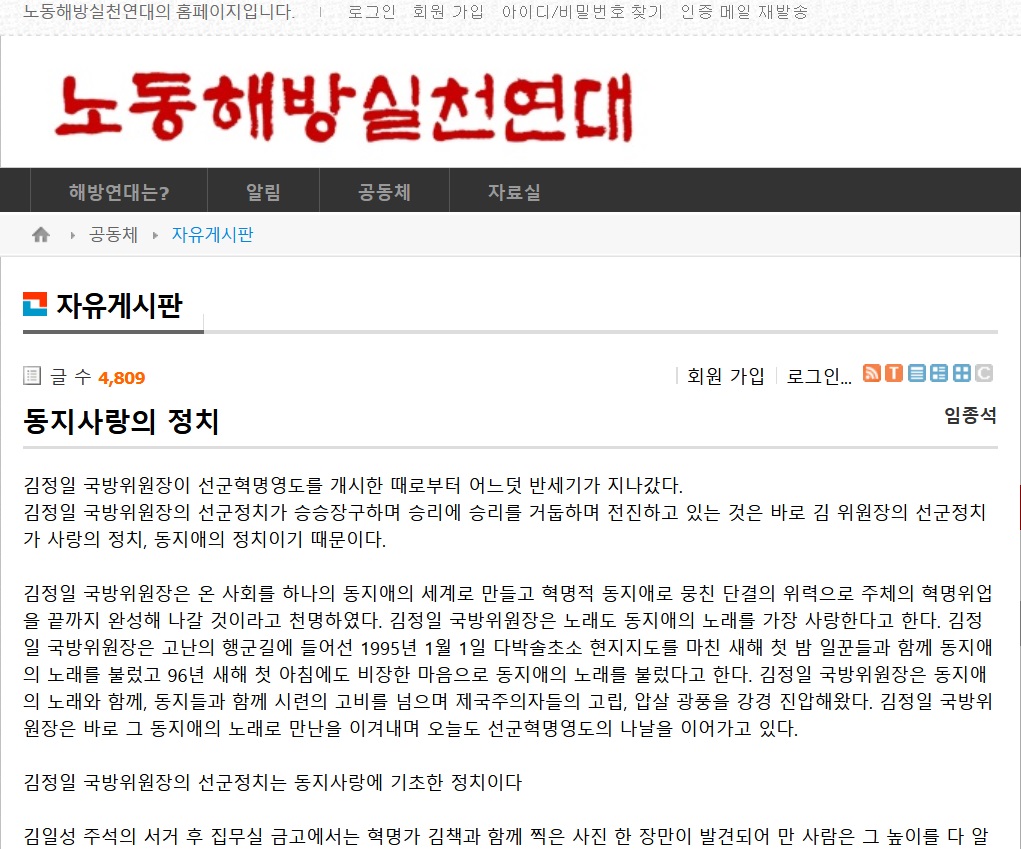
Another indication of Im Jong-seok’s pro-North Korea orientation is the collection of royalties for North Korea from South Korean broadcasters for North Korean film footage and then transferring the proceeds back to North Korea. For this purpose, he founded the South-North Economic and Cultural Cooperation Foundation (남북경제문화협력재단) in 2005 and became its chairman. The South-North Economic and Cultural Cooperation Foundation then became an agent of North Korea’s KCNA to collect royalties on its behalf.
When the money transfer was blocked by the sanctions placed after North Korea attacked and sank the South Korean Navy’s Cheonan ship, Im ensured that royalties continued to accrue until the money can be transferred at a future date. Under Korean law, if a claimant does not withdraw their deposit from court within 10 years from the day that they are able to withdraw it, the money is reallocated to South Korea’s Ministry of Finance. To ensure the money South Korean broadcasters pay to North Korea does not go back to the South Korean government, Im’s South-North Economic and Cultural Cooperation Foundation protected the royalty through a “recovery and re-entrust” strategy of withdrawing and redepositing the money, which was revealed in October 2020. The Foundation is also resisting a court ruling that would use North Korean assets (North Korean copyright fees) to compensate South Korean prisoners of war (POWs), who suffered from forced labor during the Korean war.
The Ministry of Unification, which was led by Lee In-yong at that time, allowed the recovery and re-entrust method. Im Jong-seok has also returned to that organization as the head. Song Young-gil and Woo Sang-ho have also been on the board of directors of the South-North Economic and Cultural Cooperation Foundation.
Back to the Room Salon
The Room Salon controversy did not occur only in Vietnam, but also in South Korea. On May 17, 2000, many of the “386” generation politicians of the Democratic Party of Korea went to Gwangju to attend the “Gwangju 5.18” eve commemoration. Ironically, it was Im Soo-kyung who exposed this incident on the internet website “the 3rd Power” (www.futurekorea.or), a website for the “386 generation,” because she was so angry. That night, about a dozen “386” lawmakers and lawmaker electees went to a room salon named Millenium NHK and partied with room salon female escorts, alcohol, and karaoke. The attendees included Song Young-gil, Woo Sang-ho, Park No-hae, Kim Min-seok (김민석), Jung Beom-gu (정범구), Kim Seong-ho (김성호), Lee Jong-geol (이종걸), Jang Seong-min (장성민), Lee Sang-soo (이상수), and others. Lim Soo-kyung, who went to the room salon at the request of one of the attendees to stop by briefly, realized that “there was something odd about the alcohol venue. She described that “there were several women who provided services, and everyone was drunk and singing.” Lim became angry when Woo Sang-ho cursed at her repeatedly and demanded she get out of the room salon.
Im’s post was deleted from the 3rd Power website within a couple of hours, which made Im feel even more betrayed, but the scandal was reported the next day by various news outlets, alerted by her internet post. When a reporter from OhMyNews contacted one of the attendees about the room salon incident, he begged the reporter not to report. As the criticism mounted, the room salon attendees ended up apologizing, especially since Gwangju 5.18 is so sacred to the 386 generation politicians and a source of their legitimacy, which is why they defend the narrative to the extreme, even criminalizing anyone daring to question the current narrative.
After this incident, it appears they thought attending the room salons in Vietnam was a safer option. But was it? And for those who advocated “class struggle” to achieve a proletariat-centered socialism, it is ironic they went to a room salon named Upper Class Society (or High Society). These people are currently the key leaders and influencers of the Democratic Party of Korea, and have been imposing their ideology-based policies in South Korea, especially under the last five years in the Moon Jae-in administration.
[1] Woo, Tae-yong. 82’s Revolutionary Game (82들의 혁명놀음). Seoul: Sun, 1995, 7. “82” indicates the entering class year (not the year of graduation, but the year of entering universities) of many of the NL activists, including the “godfather” of Jusapa Kim Young-hwan.
[2] Ibid, 6.
[3] Ibid, 6.
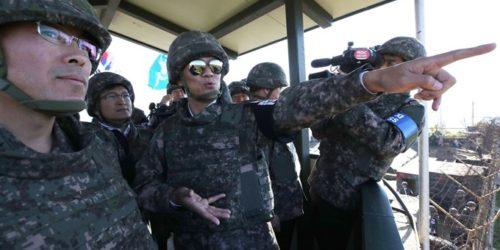
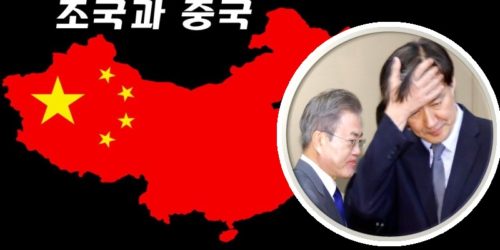
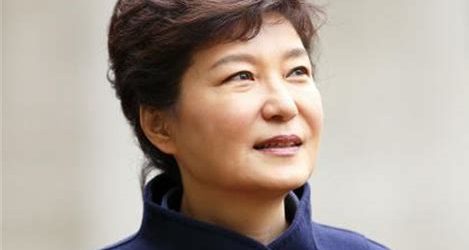
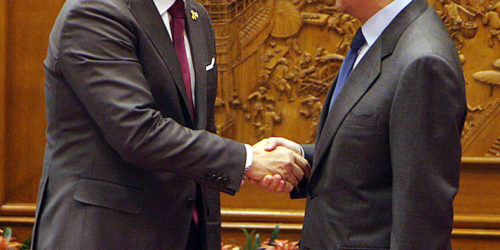
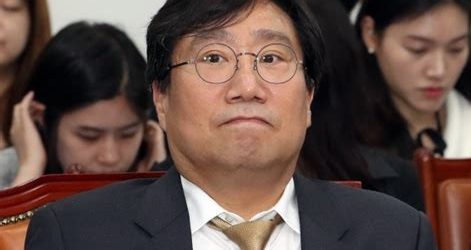
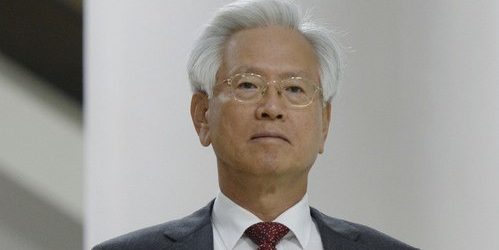
Most revealing, even if already documented. Also quite disturbing, even frightening.
It never ceases to amaze how legions of middle-aged people in the ROK and Korean diaspora who have prospered exceedingly in their lives through freedoms that Koreans north of the Imjingang don’t have, fail to appreciate the fundamentally toxic character of 임종석, 이재명 and their confreres. When once the like of Dr. O gets through to them, a critical prop of passive support of the atheist autocracy defacing Pyongyang will dissolve.